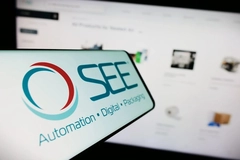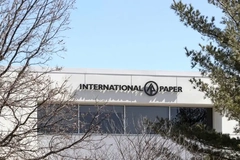Carbios PET bio recycling partnership targets Turkish waste crisis
08 Aug 2024 --- Carbios and chemicals company Sasa are partnering to boost Turkey’s PET waste recycling. The licensing agreement between the two companies will allow Sasa to construct and operate an enzymatic depolymerization plant in Adana, Turkey, with a capacity of 100,000 metric tons annually of prepared PET waste.
The collaboration provides access to circular recycling technology, enabling the production of polyester pellets, fibers and textiles from various waste sources.
With Carbios’ bio recycling technology, Sasa can diversify its offering to meet the growing global demand for sustainable materials in the textile industry, primarily catering to the European market.
“The plant under Carbios license technology would recycle any types of PET feedstock (including complex and polyester textile waste) into high-quality outputs,” Emmanuel Ladent, CEO at Carbios, tells Packaging Insights.
“This gives a real competitive advantage by sourcing various feedstock in the region, including waste that has little or even no value today.”
 Emmanuel Ladent, CEO at Carbios.
Emmanuel Ladent, CEO at Carbios.
Moreover, the technology is “plug-and-play” with existing polymerization capacities, as Carbios’ enzymatic depolymerization produces PTA and this monomer is processed by more than 95% of global installed PET polymerization capacities.
“This is also a real advantage for Sasa, which aims to extend its value chain upstream from PET waste depolymerization to fiber and textile conversion. This unit would serve the domestic and European markets,” adds Ladent.
Turkey’s recycling landscape
Turkey has gained market shares in exporting PET. Ladent tells us that the country produces 1% of the global PET market and is a growing market that is gaining export market shares. “It ambitions to play a pivotal role in the PET textile market.”
Less than 1% of textile waste is currently recycled into new textile fibers. With European regulations moving toward the incorporation of more recycled content (at least 20% of recycled fibers by 2030), demand for recycled polyester in the EU is anticipated to increase, positioning Turkey as a major producer alongside Asian countries.
“Through the installation of new recycling capacities (using either conventional or depolymerization technologies), Turkey aims to become the European alternative player to Asia that currently dominates the textile polyester market,” says Ladent.
The polyester and polymer producer aims to introduce recycling as part of its activities, which already encompass the whole value chain from PET production to fiber and textile conversion.
Carbios’ PET bio recycling technology is said to play a crucial part in Sasa’s ongoing transformation strategy, which includes back integration, capacity expansion, increased competitiveness and circularity.PET-based textile waste prepared for bio recycling.
Boosting PET recycling
Carbios has developed a revolutionary enzymatic depolymerization technology that enables efficient and solvent-free recycling of PET plastic and textile waste into virgin-like products.
The biotech company is also building a plant on its own in Longlaville, France, to serve the packaging industry and at the end, cosmetic and FMCGs brands.
Carbios plans to become a leading technology provider in the recycling of PET by 2035. Its technology enables to recover from waste the original PET building blocks, terephthalic acid and monoethylene glycol, that can be “repolymerized” into recycled PET, either in the form of resin for the packaging industry, or in the form of polyester pellets for the textile industry.
“The demand for sustainable textile is growing very fast, driven by European regulations toward textile selective collection and incorporation of more recycled content, and we are very excited to work with Sasa on this project to contribute to building a circular textile industry in Europe.”
By Natalie Schwertheim











